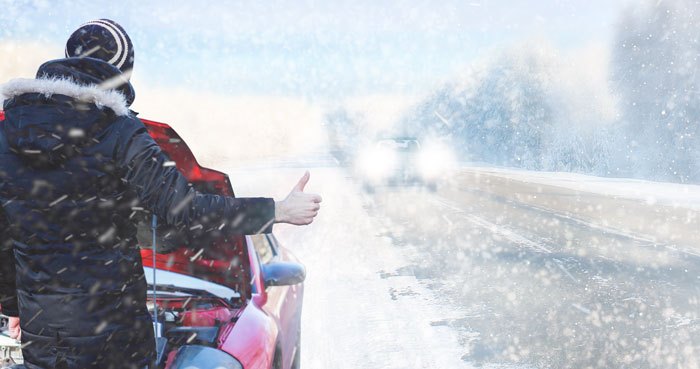Most Common Car Problems in Winter

Winter has just arrived, which generally leads to more and more car problems. It even gets worse if you need to be somewhere, and your car suddenly dies on you. It can be anything like: your car struggling to start in the morning, low tyre pressure or a dead battery. There are various other issues that can creep-up during thewinters.
Luckily, all this can be easily avoided, if taken care of. Below are a couple of look-outsigns for some of the most common car problems occurring in the winter. Let’s have a look on these!
• Dead Battery
The classic “dead battery in the winter”. Did you know? Acar battery generally loses about 10% of its charge capacity in the winter. It can even result up as a completely dead battery. If your car battery is older than five to six years, we highly suggest you to install a new battery, to avoid unexpected breakdowns.
What to look for?
o Starting problems in the early hours of the morning
o Corrosion on the battery terminals
o Electricals accessories fluctuating or not working
• Low Tyre Pressure
During the winters the car tyre pressure drops along with the drop in temperature. A sudden temperature shift can also affect the compounds in the car tyre to soften and crack. The only way to avoid this is to check the tyre pressure every week. We suggest you to invest in a portable car tyre inflator, which might come in handy.
What to look for?
o Low tyre pressure
o Bulged or cracked side walls
o Visible punctures and tears
• Thick Fluids
During winter season, various car fluids like the engine oil, transmission fluid, coolant, even the wiper fluid increase in density and viscosity. This causes them to work less efficiently. Thick engine oil leads to a significant loss in power due to increased fluid drag. Apart from regular oil changes, it is anadvisable to let the engine warm-up for at least 10 minutes.
What to look for?
o Cold cranking issues
o Head gasket leakage
o Low engine temperature
• Cracked Spark Plugs
Spark plugs are used to ignite the air-fuel mixture inside the combustion cylinder. The cold weather can cause the ceramic spark plugs to crack or corrode. The cold weather can also cause the electrode on the spark plug to wear out causing problems while starting.
What to look for?
o Sluggish acceleration and performance
o Poor fuel economy
o Visible corrosion on the spark plug
• Worn Alternator Belt
An alternator is what charges the battery, which in turn powers all the electronics in the car. The cold winter can cause the alternator belt to crack. If you hear a high-pitched squeal during start-up, there is a high chance of a worn alternator or a timing belt. Get a complete inspection of your car to check for any problems with the alternator.
What to look for?
o A battery warning light on the dashboard
o Battery charging issues
o High-pitched squealing noise from the engine bay
• Weak Starter Motor
During winters, the starter motor work hard to turn the engine, which puts a lot of stress on it. You cannot do much about this except predicting its failure. Also, check for corrosion on the starter terminals and ensure it is well insulated from any moisture.
What to look for?
o Clicking sound during start-up
o Audible metallic noise from the starter motor
o Delay in engine start
